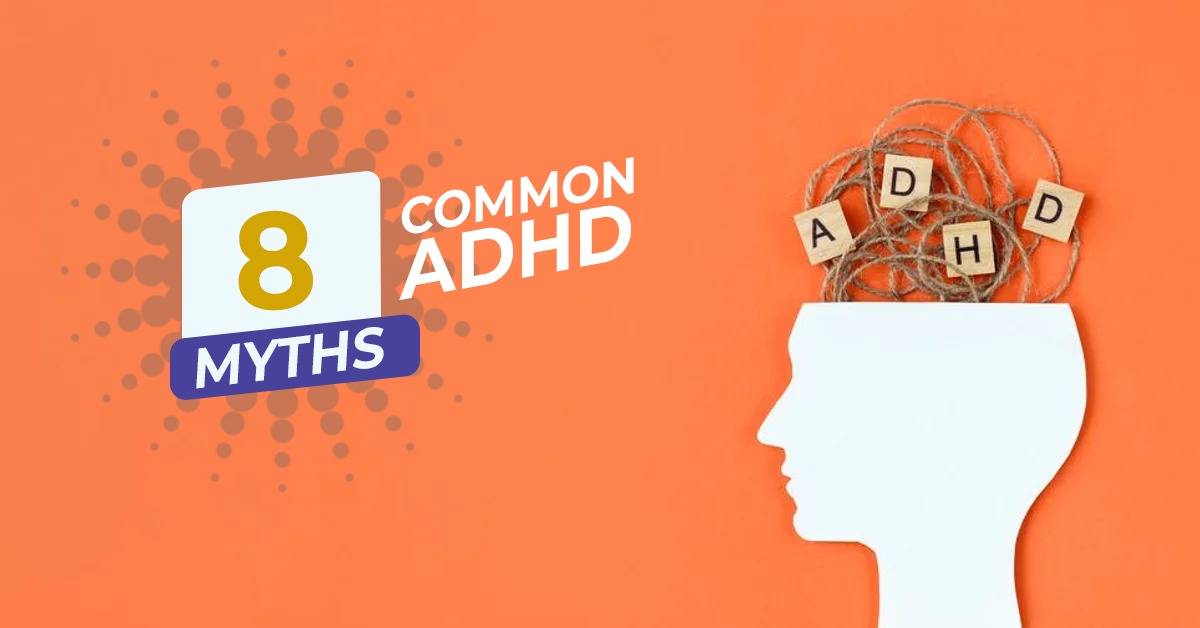8 Common ADHD Myths
Attention deficit hyperactivity disorder (ADHD) symptoms include much more than difficulty sitting still or feeling as if you're bouncing off the walls. Despite the fact that these are typical signs of ADHD, which, according to the American Psychiatric Association, affects 2.5 percent of adults and 8.4 percent of children (APA) — can also struggle with focusing, impulse control, staying organized, and task completion. Unfortunately, the internet is riddled with harmful myths and stereotypes that make people with ADHD appear to be lazy, stupid, need to work harder in school, or are the result of poor parenting.
ADHD is 100% manageable, and kids with ADHD who learn to manage their symptoms can easily grow up to be incredibly happy and successful adults. So, what are the most common misconceptions about ADHD — and what is the truth about this widely misunderstood mental health condition?
Myth 1: Only Young Boys Get ADHD
Fact: ADHD can affect both children and adults, regardless of gender. What could explain the disparity? Externalizing behaviors (such as excessive talking, constant fidgeting, or interrupting others) are more common in boys with ADHD than internalizing behaviors (such as daydreaming or leaving tasks unfinished) in girls with ADHD.
Myth 2: ADHD children are always hyperactive.
Fact: According to the experts, there are three types of ADHD that can be diagnosed based on your symptoms:
"Children with hyperactive symptoms fit the stereotypical image of ADHD that many people have—bouncing off the walls, refusing to listen to directions, and acting impulsively," according to many experts. Hyperactive-impulsive symptoms include:
Constant restlessness, movement, or fidgeting
Inattentive symptoms include:
Myth 3: ADHD can be caused by Poor Parenting
Fact: Experts suggest that there is no strong evidence to support the idea that any particular type of parenting causes ADHD. While experts are still learning about the causes of ADHD, genetics appear to play a significant role. Other than heredity, the American Academy of Pediatrics says the following are all potential contributors to ADHD development:
Myth 4: ADHD Is a Type of Learning Disability
According to experts, ADHD is a neurodevelopmental disorder, not a learning disability. This is a common misconception because ADHD can make learning in a typical school or college setting difficult.
Myth 5: Sugar Causes ADHD
Fact: ADHD is not caused by sugar or highly processed foods. Sugar may have an effect on ADHD symptoms, but scientific evidence is conflicting. According to some experts "whether you have ADHD or not, too much sugar causes our brains to crash." "Sugar highs and crash cycles, in particular, are detrimental to symptom management in people with ADHD."
Myth 6: Caffeine Increases Adult Hyperactivity
Fact: While caffeine may make an already overly energized or impulsive person with ADHD feel even more energized, some adults with ADHD, especially those who do not take medication, believe it helps them focus.
Myth 7: No One Really Needs ADHD Medication
Fact: Experts believe that many people with ADHD find medication helpful in managing their symptoms. ADHD medications are classified into two types:
Various medications are prescribed for various symptoms. Finding the right medication — or the right combination of medications — for a specific person can be a trial-and-error process. The expert Psychiatrist doctor may need to adjust the medication dose more than once to find the right fit. And if one medication does not work, it is very likely that another will.
Myth 8: All children with ADHD get the necessary treatment.
Fact: ADHD is diagnosed and treated more frequently in some children than others, and gender, race, and socioeconomic stereotypes and biases may be to blame. If you are looking for a good website for Private ADHD Assessment in the UK then you are at the right place, ADHDMe is the one for you.
